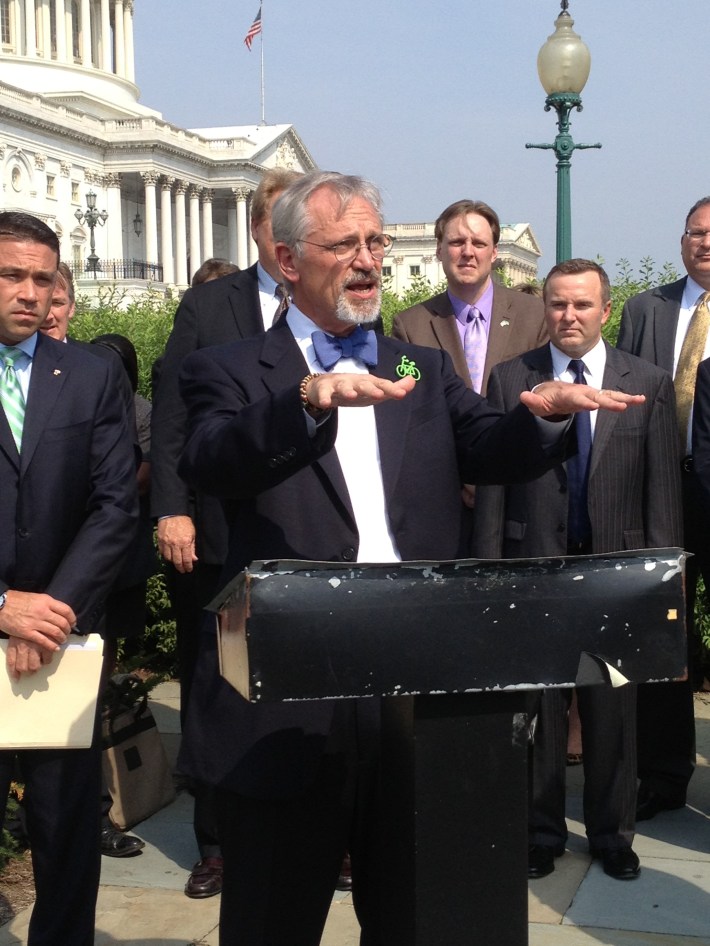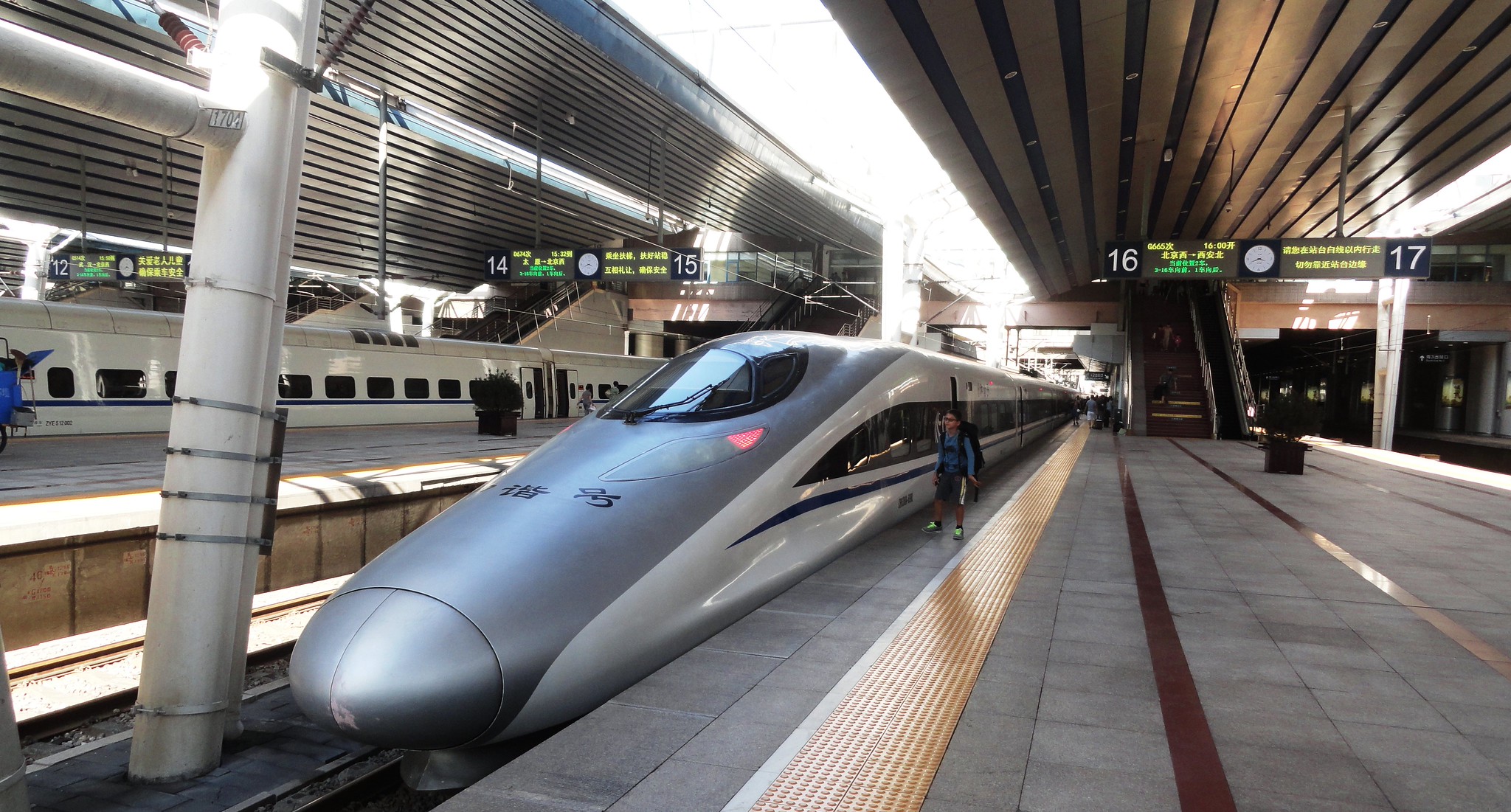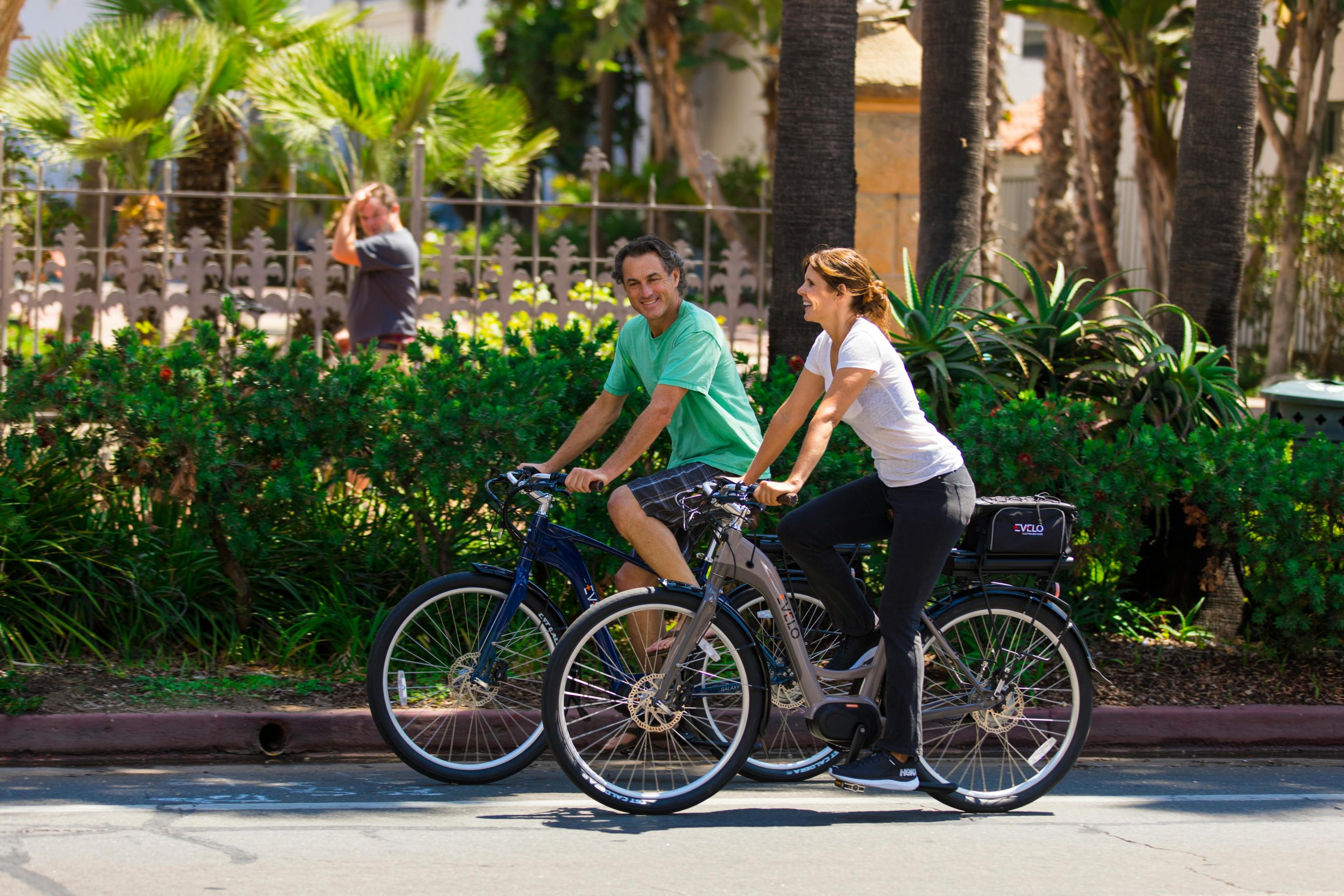While the rest of the Capitol prepared for President Obama's visit to lobby members of Congress on Syria military strikes, three lawmakers gathered under the hot sun with transit advocates to push for a more bread-and-butter issue: tax benefits for transit riders.

For years, car commuters could claim up to $240 per month in tax-free driving expenses, while transit riders could claim only up to $125. The 2009 stimulus package brought transit commuter tax benefits up to the same level, but the parity provision kept expiring each year, and lawmakers had to scramble to reinstate it. Transit parity wasn't reinstated for 2012, reverting the maximum monthly deduction back to $125.
A fiscal cliff deal at the beginning of this year not only restored parity for transit riders, it made the change retroactive, setting both transit and parking deductions at a maximum of $245 per month -- and creating big headaches for employers. The retroactivity was necessary to restore parity, since otherwise it would have been considered a new change to the tax code. But it was probably more trouble than it was worth, creating a disincentive for employers to offer it.
"Employers have looked at this benefit and said, 'It goes up, it goes down, you make changes every year; I don't understand it. Why should I even give this to my employees?'" said David Judd of Edenred, one of the main companies that administers these benefits. "That's a lousy attitude, given all the benefits of it. But it's become confusing."
That's why Reps. Michael Grimm (R-NY), Earl Blumenauer (D-OR), and James McGovern (D-MA) gathered outside the Capitol today to push for their Commuter Parity Act (HR 2288). The bill would make the transit and parking benefits equal on a permanent basis -- and would include bike-share as a form of transit.
Only two other Republicans have signed on to the bill: Reps. Peter King of Long Island and Robert Wittman of Northern Virginia. But McGovern said he doesn't know anyone who's opposed to this bill, on either side of the aisle. It's good for small businesses, which pay lower payroll taxes when their employees have more tax-free income. And another sweetener is that the measure is revenue-neutral, costing the taxpayer nothing.
Sponsors were a little shy about explaining how an increase in the benefit could cost nothing, but it's good policy: They're reducing the maximum monthly deduction for parking to $220. It's a "tiny" reduction, in Blumenauer's words, and it's enough to give a fair shake to all transit commuters. Of course, Blumenauer tends not to be shy about these things, and he did slip in his opinion that the benefit should, in fact "tilt it the other way -- because [transit commuters] are the folks that are using less of the roadway; they're having less congestion, fewer accidents."
"But we're not doing that," he was quick to add. "Just even-steven."
Many daily transit commuters don't spend as much as $220 per month, but for commuter rail riders and people with long express bus trips, a higher maximum will make a difference. Other people who stand to benefit are the growing number of Americans incorporating bike-share into their commutes.
Blumenauer would like to see commuter benefit parity folded into a grand bargain, which Congress is supposedly going to negotiate soon to bring closure on battles over the budget, the debt ceiling and, potentially, tax reform. But he's not putting all his eggs in that basket. This is a standalone bill that can pass as such -- and with broad bipartisan support. Blumenauer suggested it could even pass on suspension, a quicker way to pass a bill in the House that requires a two-thirds vote in favor. Sen. Chuck Schumer of New York is ready to pick up the mantle in the Senate once the House takes action.





